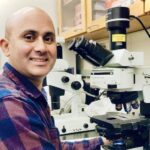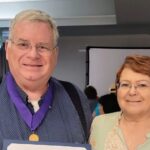
The Department of Entomology and Plant Pathology at the University of Tennessee Institute of Agriculture welcomes Gautam Shirsekar as an assistant professor. Shirsekar joined the team on February 1, 2024. …

The Department of Entomology and Plant Pathology at the University of Tennessee Institute of Agriculture welcomes Gautam Shirsekar as an assistant professor. Shirsekar joined the team on February 1, 2024. …

The Department of Entomology and Plant Pathology at the University of Tennessee Institute of Agriculture is pleased to welcome Gayan Kariyawasam as an assistant professor. Kariyawasam officially joined the team…

The Department of Entomology and Plant Pathology at the University of Tennessee Institute of Agriculture is pleased to welcome Kelsey Coffman as an assistant professor of insect-microbe interactions. Coffman officially…

The Department of Entomology and Plant Pathology is pleased to announce the arrival of three accomplished individuals who will join our faculty on February 1, 2024. EPP welcomes Kelsey Coffman…

The Department of Entomology and Plant Pathology is excited to welcome the newest member of its academic faculty, Charity Owings. Owings assumed her role as a research assistant professor on…

The Department of Entomology and Plant Pathology welcomes Nar Ranabhat as an assistant professor and Extension plant pathologist at the Soil, Plant, and Pest Center located in Nashville, TN. Ranabhat…

The Department of Entomology and Plant Pathology welcomes Midhula Gireesh as an assistant professor and Extension entomologist at the Soil, Plant and Pest Center in Nashville, TN, on June 1,…

Professor emeritus Mark Windham was awarded the Joseph and Marion Klima Medal at the 2023 ARS National Rose Convention in Shreveport, LA on May 6, 2023, by the American Rose…

Bonnie Ownley, professor, graduate director, and assistant department head in the Department of Entomology and Plant Pathology at the University of Tennessee Institute of Agriculture (UTIA), was selected as a…